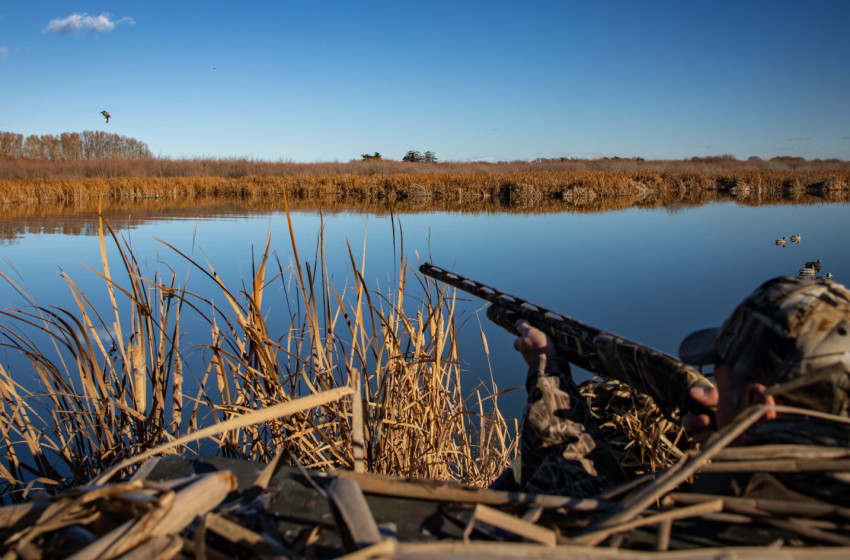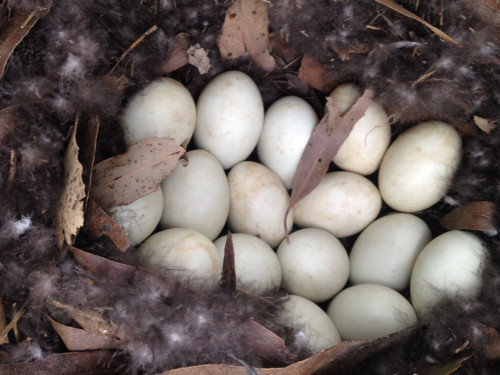Both Barrels July 2024
- 24/07/2024

What a great season we’ve had, our hunter harvest survey and satisfaction survey show us that hunters who have been going out throughout the season have been getting the most value out of the game bird licence.
In next year’s game bird special edition of the Fish & Game magazine, we’ll update hunters on these surveys.
This is the last Both Barrels until March 2025, and Fish & Game wants to thank all our hunters for their support this season.
Photo Competition
Do you have a great picture of a game bird?
Enter it in our annual game bird licence photo competition and have a chance to win $1000 from the Game Bird Habitat Trust and be the image on the 2026 game bird hunting licence
Please select here to view more information and to enter.
End-of-season hunt – Hunt something different
Many hunters pack away their shotguns when mallard season ends, but there are many more options for the hunter.
Not only are there many upland game options around the country, but there are also many extended seasons on pukeko, black swan, and, in some cases, paradise shelduck.
Why not reach out to your mates and hunt these birds? You will be helping not only feed your family (swans and pukeko are delicious) but also the rural community we rely on for access to our hunting spots.
Swans and pukeko can be quite destructive to some farm owners' cropping efforts, so harvesting a few of them will help out the rural community, especially when money is tight for the landowners.
Summer seasons
Some of our regions offer summer seasons where licence holders can harvest birds for short periods in the summer.
Largely focused around paradise shelduck, there are some regions that offer a very short summer season on Mallards.
Check out your regulations guide here to see what is available for both the remainder of this year and the summer season.
Looking forward to next season
The team at Southland Fish & Game have offered us some sage advice about the Upcoming breeding season:
The breeding season for mature mallard hens in most of the country typically begins at the end of July, and this year, pre-breeding season conditions have been ideal.
Good amounts of surface water throughout June created abundant feeding opportunities, resulting in mallards in fantastic condition, as many hunters in the South Island will have likely noticed.
Likewise, in the North Island, this bodes well for the upcoming breeding season because there is a strong relationship between mallard hen condition (weight) and several important breeding outcomes.
Better-conditioned females tend to nest earlier, renest more frequently, and have larger clutch sizes.
Early nesting has been linked to higher duckling survival rates, and having more time to renest is crucial if a nest is lost to predation.
Larger clutch sizes mean more ducklings, which benefits the mallard population going into next season.
It is also well established that there is a positive relationship between hen condition and egg volume; larger hens lay larger eggs, and larger eggs have a higher hatch rate.
The excellent condition of our mallard hens as they enter the breeding season will set a solid foundation for opening weekend success next year.

Picture: With mallard hens in great condition, we have the foundations for a great breeding season, a large clutch of mallard eggs.
What to do with all my game birds?
Dust off your copy of the award-winning Fish & Game cookbook if you are struggling for ideas.
Or check out the regional links above to see what culinary gems our staff around the country have on offer for new ways to cook up your harvest!
Shot a Banded Bird?
Help out our Fish & Game monitoring programme by sending your band details here and going to the draw for some great prizes on offer.
Warm Barrels
From the Team at Fish & Game NZ